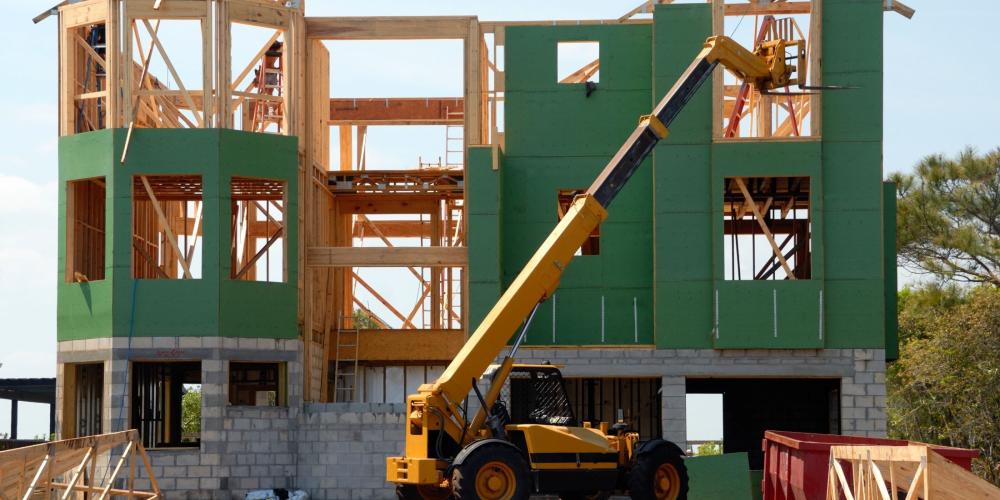
The cities of Berkeley, Fairfield, Pinole and Richmond are among the communities having earned the state's Department of Housing and Community Development's "Prohousing" designation for efforts to encourage development of housing at all income levels.
The designation comes with funding incentives and additional resources to help speed housing production. The announcement brings to 47 the total number of California communities designated as Prohousing.
“At nearly fifty prohousing communities, California is making progress – but we can do better, said Gov. Gavin Newsom said. "At a time when the state is facing a housing crisis, every local jurisdiction should be stepping up to earn this distinction.”
Among the Bay Area cities highlighted by the state:
The City of Berkeley offers incentives to produce housing, and its Prohousing application displays a strong commitment to improving housing access. In early 2021, the city removed the minimum parking requirement for single- and multi-family developments. Additionally, the city facilitates Accessory Dwelling Unit (ADU) production by prioritizing ADU permit applications, having one dedicated ADU planner, and providing a website with FAQs and links to ease ADU planning. Finally, the city’s Housing Trust Fund (HTF) policies authorize the regular release of development loan and Small Sites Program solicitations. These funds are available for affordable housing construction and are available to developers through a single application process. The HTF Small Sites Program supports the acquisition and renovation of occupied multifamily rental properties, conversion of rent-controlled properties to restricted affordability, and potential conversion to limited- or non-equity housing cooperatives.
The City of Fairfield’s Prohousing application lays out a variety of policies designed to further and expand housing production and help reduce development costs. Fairfield’s 2023-2031 housing element, which was recently certified by HCD, has identified capacity for 246% of the allocated RHNA units, far exceeding requirements set out by state law. The city has approved impact fee reductions for traffic impacts ranging from 24% to 35% for units in certain targeted infill areas. Also, the city established the Fairfield Housing Trust Fund (HTF) in 2021 and seeded it with $1.045 million. This will help create and preserve mixed-income and affordable housing initiatives in the city for extremely low- through moderate-income households.
The City of Pinole’s Prohousing application reveals a variety of innovative policies. The city has implemented a zoning ordinance for on-site affordable housing that requires a minimum density for all developments and includes the option to modify development standards to promote greater development intensity. Modifications include reducing setbacks, parking requirements, and open space requirements and increasing density. The city also created an ADU Fast Track process, which would prioritize processing of ADUs. The city implemented a fee waiver that provides low- or no-cost building permits to age-qualified, extremely low- to lower-income households and qualified special need disabled households to make universal design improvements to their home. Finally, the city is partnering with affordable housing developers—utilizing the city’s grant writers—to support the identification, conceptualization, preparation, and submittal of grant applications for affordable housing projects.
The City of Richmond’s Prohousing application highlights new objective design standards, an ADU grant opportunity, and documented affordable housing practices. The city adopted the Richmond Livable Corridors Form-Based Code, establishing objective design standards to ensure that short- and long-term developments and capital improvement projects substantially improve quality of life for Richmond residents. Additionally, the city has adopted a Transformative Climate Communities Grant, which seeks to boost ADU/JADU production by providing free or discounted pre-approved floor plans and guides for low-income residents living within the designated project area. Finally, the city uses housing in-lieu fees and other city funds to support affordable housing development.
To meet the housing needs of all Californians, the state needs to plan for 2.5 million new homes over the next eight years, with at least one million serving the needs of lower-income residents. That critical goal can only be reached if local governments actively work to implement state housing laws and follow best practices that go above and beyond those minimum requirements. The Prohousing designation rewards communities that are willing to cut through red tape, reduce construction and development costs, and create housing policies with a growth mindset by providing them with funding incentives and additional resources that help scale up those innovative efforts.
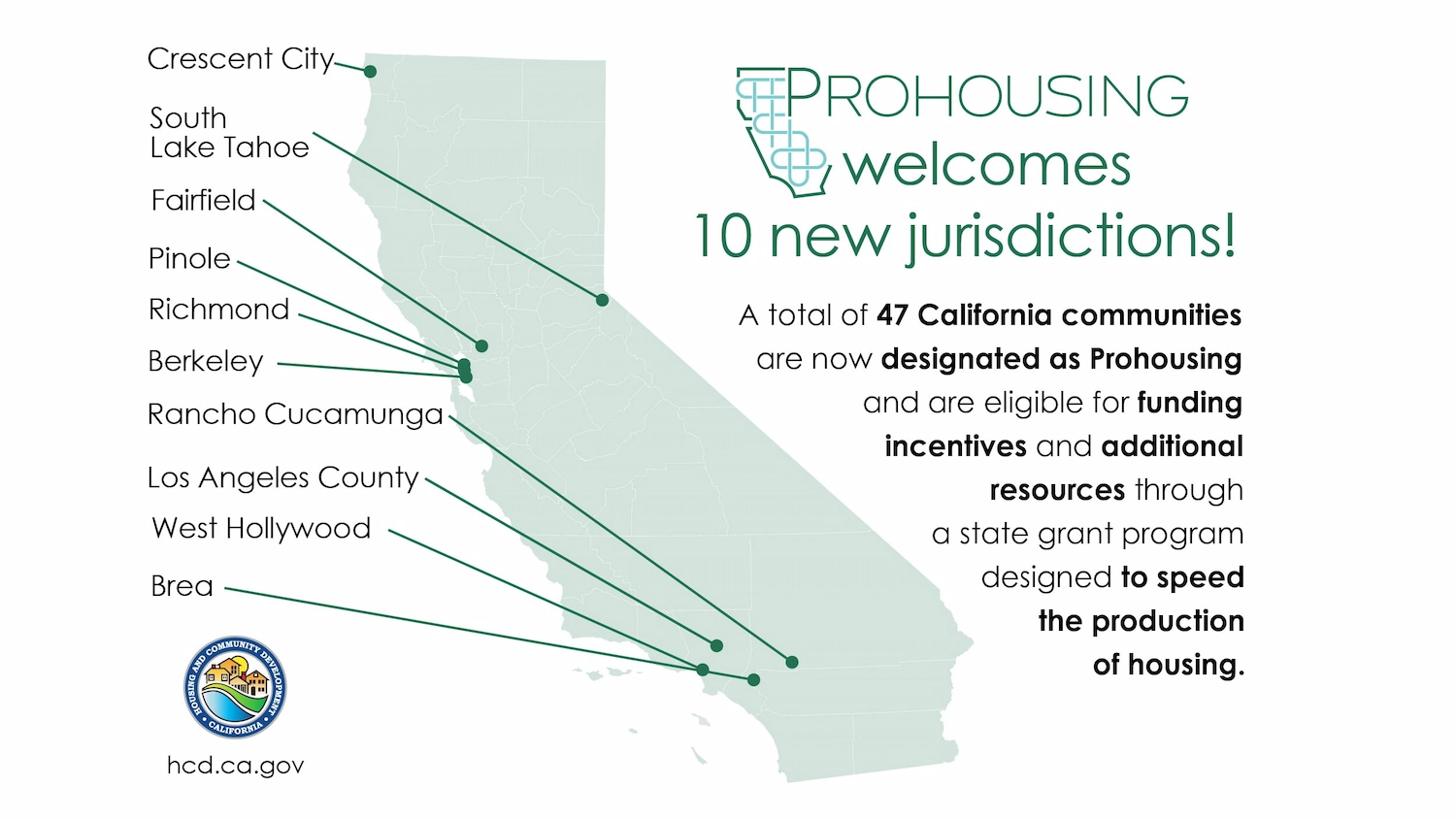
The Prohousing Designation Program is part of a package of supports, incentives, and accountability measures established by the 2019-20 Budget Act. By earning the Prohousing designation, communities receive exclusive access to Prohousing grants and additional points in the scoring of competitive housing, community development, and infrastructure funding programs administered by the Department of Housing and Community Development (HCD).
This includes the Prohousing Incentive Program (PIP), a grant program designed to accelerate affordable housing production and support preservation efforts. The 47 communities now designated as Prohousing were eligible to apply for a share of $9.5 million available in PIP Round 2, to be awarded this summer.
California offers incentives and supports to encourage communities to find creative solutions that break down barriers to much-needed housing production, such as accelerated production, equitable zoning, sustainable land use, reduced development costs, or financial subsidies.
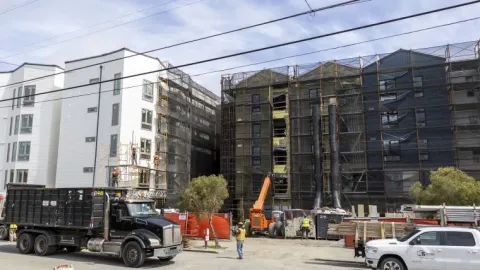
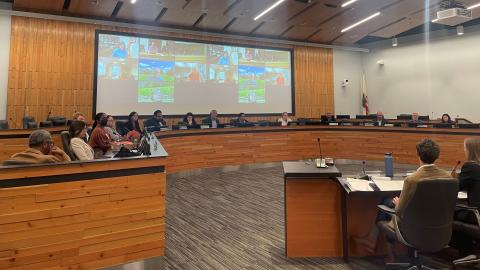
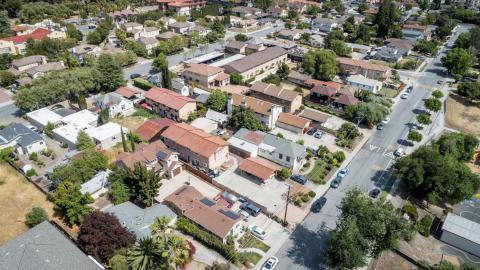
Submit your comment
In order to receive a reply to your comment, please provide an email address.